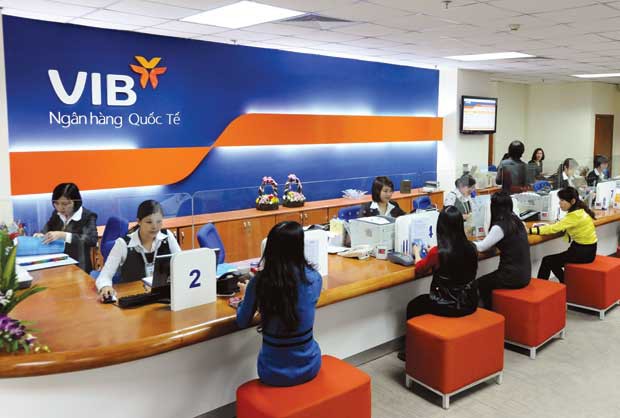Many banks have recently announced they will issue a large number of shares under the employee stock ownership plans (ESOP) to retain good employees and increase capital.

Many banks have recently announced they will issue a large number of shares under the employee stock ownership plans (ESOP) to retain good employees and increase capital.
On May 30, 2022, the Vietnam International Commercial Joint Stock Bank (VIB) was the latest bank to release a plan to issue more than 10.9 million ESOP shares at the price of VND10,000 per share. The shares are limited to transfer for only one year. VIB closed at VND26,500 per share on Wednesday on the HCM City Stock Exchange (HoSE).
The Board of Directors of Vietnam Prosperity Commercial Joint Stock Bank (VPBank) have recently approved a plan to sell ESOP shares to the bank’s employees. Specifically, the bank will offer 30 million treasury shares to employees at an expected price of VND10,000 per share, against the listed price of VND30,850 on the HoSE on Wednesday. The maximum number of shares to be issued to foreign employees is 10 million shares, accounting for 33.33 per cent of the total number of shares in this issuance.
The shares are restricted to transfer up to three years from the end of the issuance and will be released gradually at the respective ratios of 30, 35 and 35 per cent.
If the offering is successful, VPBank will have an addition of VND300 billion to supplement its working capital.
In 2021, VPBank sold 15 million shares from the treasury share source to nearly 300 employees under the ESOP at the price of VND10,000 per share. In 2020 and 2019, VPBank also distributed 17 million and 31 million ESOP shares at the price of VND10,000 per share, respectively.
Similar to VPBank, Vietnam Technological and Commercial Joint Stock Bank (Techcombank) is also preparing to issue more than 6.3 million ESOP shares, equivalent to more than 0.18 per cent of the bank’s outstanding shares at the price of VND10,000 per share. In which, 5.3 million shares will be issued to Vietnamese employees and 967,367 shares will be issued to foreign employees.
Previously, Techcombank issued six million ESOP shares to 237 employees in September 2021. In 2020, 2019 and 2018, the bank offered 4.76 million shares, 3.5 million shares and 17 million shares, respectively, to its employees at the price of VND10,000 per share under ESOP plans.
At the 2022 annual general meeting of shareholders recently, An Binh Commercial Joint Stock Bank (ABBank) approved the plan to issue 5 million ESOP shares at the price of VND10,000 per share. Previously, by the end of 2021, the bank issued more than 11 million ESOP shares to its employees at the price of VND13,000 per share.
Many other banks such as Tien Phong Commercial Joint Stock Bank (TPBank), Maritime Commercial Joint Stock Bank (MSB) and Saigon Hanoi Commercial Joint Stock Bank (SHB) also expect to issue 5.2 million, 12.25 million and 45.1 million ESOP shares in 2022, respectively.
Industry insiders said the issuance of ESOP shares is a strategy to retain good employees as those receiving ESOP shares are generally long-time employees who have contributed to the development of the business.
Notably, the ESOP share issuance is also aimed to help banks increase capital to meet the Government’s capital adequacy ratio (CAR) regulations.
Dao Manh Khang, chairman of ABBank, ESOP shares are not only a reward for the hard work of employees but also help banks mobilise a large sum of money to increase capital, meet business needs, and ensure compliance with the CAR.
However, according to experts, ESOP shares also have a downside, such as management profiting at the expense of shareholders.
Banking expert Nguyen Tri Hieu told Viet Nam News that any ESOP issuance needs to be approved by shareholders as the issuance will cause a dilution of shares and shareholders are the first to be affected by the dilution.
“The increase in the number of outstanding shares at a price that is much cheaper than the market price will cause the share price being negatively affected when the transfer restriction period of the ESOP shares expires,” he explained. — VNS





